![]()
Sun, February 17, 2013 | terrorism-info.org.il | Editor: Dr. Raz Zimmt
Ammar Headquarters chief’s announcement draws angry reactions.
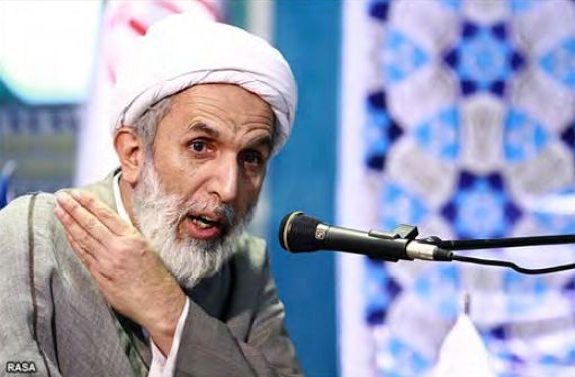
Hojjat-ol-Eslam Mehdi Ta’eb, chief of the Ammar Strategic Base (an organization established to fight the “soft war” against the Islamic Republic of Iran), in a meeting with university student members of the Basij paramilitary force, has stated: “Syria is the 35th province [of Iran] and a strategic province for us. If the enemy attacks us and wants to appropriate either Syria or Khuzestan (in southern Iran), the priority is that we keep Syria.” (source: iranpulse.al-monitor.com).
Hojjat-ol-Eslam Mehdi Ta’eb, chief of the Ammar Headquarters, a think tank affiliated with the radical right wing of the conservative camp, has announced that Iran needs to give more importance to Syria than to the Khuzestan region in southwestern Iran, drawing strong reactions from the Iranian media and from social networks.
In a speech delivered at a conference of Student Basij members held in Tehran on February 14, the cleric discussed the developments in Syria and said that Syria is more important for Iran than the Khuzestan region, which lies on the Persian Gulf coast. He even referred to Syria as “Iran’s 35th, strategic province”. Ta’eb said that, if the enemy attacks Iran and wishes to take over Syria or Khuzestan, Iran’s priority should be to keep Syria. The reason, according to Ta’eb, is that, if Syria remains in Iran’s possession, it will be able to reclaim Khuzestan, but if Iran loses Syria, it will not be able to maintain its hold even on Tehran itself.
In his remarks, Ta’eb also discussed the Iranian assistance to the forces that fight at President Assad’s side. He said that the Syrian army was unable to wage war inside the cities, which is why Syria adopted Iran’s proposal and created a militia consisting of 60 thousand Hezbollah members whose mission is to wage war inside the cities.
In another part of the speech, Ta’eb discussed the political and economic situation in Iran. He argued that the main reason for the economic crisis lies in the economic sanctions, and that no Iranian government had ever faced such severe oil export sanctions before. The cleric thus adopted the claim made by the president and his supporters, according to which the economic crisis should be blamed mostly on the international sanctions rather than on the economic performance of the government, as its critics argue.
Referring to the military threats facing Iran, Ta’eb said that the only threat that faces Iran is the “Zionist regime”, which has both the motivation and the capability to attack the country. He stressed, however, that Iran, through Hezbollah, has Israel in a “lock” from which it couldn’t escape during the second Lebanon war. Speaking about the United States, Ta’eb said that it has neither the funds nor the military ability to start a war against Iran (Aftab News, February 14).
The Ammar Headquarters (قرارگاهعمار), headed by Mehdi Ta’eb, was established in early 2011 on the initiative of regime loyalists and pro-Khamenei conservatives affiliated with the radical right wing of the Iranian politics, including clerics, culture activists, Majles members, and Revolutionary Guards veterans. Its creation reflected the need felt by top officials in the conservative religious establishment to mobilize the regime’s supporters in light of the political crisis that broke out after the 2009 elections. Early on, the think tank’s members focused most of their efforts on combating the reformist opposition. Several months after it was established, however, its leaders shifted most of their attention to fighting the “deviant faction”, affiliated with the president and his controversial former office chief Rahim Masha’i.
During the elections for the Majles, held in March 2012, members of the Ammar Headquarters expanded their political activity and worked to push forward candidates belonging to the radical right wing but unaffiliated with the president’s supporters and the “deviant faction”. Key members of Ammar co-founded the Steadfast Front, supported by radical cleric Ayatollah Mohammad-Taqi Mesbah Yazdi.[1]
“Ta’eb’s remarks serve Iran’s enemies who seek to undermine its territorial integrity”
Shortly after the report on the controversial speech delivered by the head of the Ammar Headquarters surfaced, Baztab, a website affiliated with the moderate wing of the conservative camp, posted a strong-worded commentary article titled “We will not exchange Khuzestan for anything, not even for Damascus”.
The website argued that, in his remarks, Ta’eb ignored the possibility that his statement would be exploited by Iran’s enemies who seek to undermine the country’s territorial integrity. Baztab mentioned that such aspirations had been recently manifested at a conference to support the Arab minority in Khuzestan, held in Cairo (see the January 14, 2013 issue of Spotlight on Iran). According to the website, there are extremist groups operating in the Arab world which for several decades have claimed sovereignty over those regions in Iran where Arabs reside, and Ta’eb’s remarks lend credence to the claims made by these extremist elements.
Baztab said that Ta’eb not only spoke about prioritizing Syria over Khuzestan but also stressed the need to make use of the Basij forces to wage war in the cities of Syria. His remarks come at a time when those media that are hostile to Iran are taking advantage of the “unfounded rumors” about the presence of Iranian Basij forces in Syria to lash out against the country, and just when Iran is making considerable efforts to put an end to the bloodshed in Syria.
Syria’s role in the resistance against Israel cannot be ignored, the website argued, and since the beginning of the civil war in Syria, Iran has stressed its opposition to the intervention of foreign forces in that country and its support for gradual reforms there. However, there is a growing realization even in Iran that solving the crisis in Syria may only be possible by removing President Assad from power, as the talks that Iran has been holding recently with members of the Syrian opposition may indicate.
Iran is opposed to any kind of foreign intervention in Syria, the article said, but this does not mean that Iran’s sovereignty and territorial integrity can be ignored or that Syria can be compared to Khuzestan, a strategic, oil-rich region. The existence of an anti-Israeli government in Syria is an important strategic principle for Iran, but no military, diplomatic, or strategic official will ever suggest giving up even one inch of Iranian soil. Bringing up the issue, even if only as an example aimed to stress the importance of the subject, provokes unnecessary sensitivity. Those who fought in the Iran-Iraq War did not spend eight years on the battlefield to see part of Khuzestan’s blood-soaked soil fall into foreign hands. They fought courageously so that no one would dare set their sights on Khuzestan or any other part of Iranian soil.
What ensures Iran’s fate and superiority in the diplomatic game that it is playing with its enemies in the beginning of the 21st century is not war or weapons but rather intelligence, direction, political knowledge, and bargaining power. The interior and foreign policies as well as the media are better left to those well-versed in political science and international relations, who can turn enemies into friends and avoid unnecessary media scandals instead of instigating nationalist sentiments and foment differences of opinion. Clerics who wish to become involved in foreign policy and national security need to know that expressing an opinion about the country’s territorial integrity and national identity is a more sensitive issue than ones having to do with domestic policy, Baztab concluded.
“We will not give up Khuzestan even in exchange for all of Syria”: web users’ reactions to Ta’eb’s speech
Most news website readers also reacted angrily to Ta’eb’s remarks. Some of them personally attacked the cleric (“Is this a university lecturer or a warmonger and propagator of hatred?”, “Is he Iranian or a foreigner?”). One of the readers suggested sending Ta’eb to fight in Syria at President Assad’s side (“Perhaps we can get rid of him”). A number of readers referred to a hadith attributed to Prophet Muhammad, according to which one’s love for the homeland reflects the strength of religious faith. Speaking about the criticism voiced by Ta’eb against the “deviant faction”, one reader said that, judging by his remarks, he is a deviant himself. Another reader criticized Ta’eb’s statement and argued that the crisis that has gripped Syria for the past two years has had no negative influence on Iran’s security.
In their criticism of Ta’eb, many readers highlighted the numerous casualties suffered by Iran during its war against Iraq, and some of them went as far as to accuse Ta’eb of treason. One reader wondered how the cleric can claim that Syria takes precedence over Khuzestan after eight years of war that saw so many people killed, injured, crippled, and captured. Another reader said that, even if all that Ta’eb meant was to stress how important Syria is for Iran, he would have been advised to use a different example than Khuzestan, which is a symbol of heroism and a monument for the blood of the soldiers who died defending it. He noted that the Iranians will not agree to give up even one inch of Khuzestan—not just for Damascus, but for all of Syria—and that if a war should start against the two countries (Iran and Syria), the Iranians will only be willing to defend their own land (readers’ comments posted on Baztab, February 14).
Ta’eb’s announcement also drew interest from social networks. In the wake of the remarks, an exiled Iranian blogger posted an entry on his weblog titled “The Provinces of the Islamic Republic of Iran”, in which he enumerated Iran’s “list of provinces” in the order of priority that they are normally given in the Islamic republic. The list includes the “provinces” of Palestine, Lebanon, Venezuela, Karbala and Najaf in Iraq, North Korea, Syria, and a lengthy list of countries in Africa (harfhaye-nagofte-elham.blogspot.fr).
The storm provoked by Ta’eb’s remarks: yet another manifestation of the strength of nationalist sentiments in the Iranian public
This is not the first time that Iranian web users have expressed their nationalist sentiments in the wake of controversial statements having to do with the territorial integrity or national-cultural identity of their country. For instance, a conference in support of the Arab residents of Khuzestan, recently held in Cairo, sparked angry reactions from web users who spoke out against expressions of separatism in Iran, lashed out against the Egyptian government and President Morsi, and demanded a strong Iranian reaction against Egypt.
In November 2010 many Iranian web users were angered by the release of a YouTube video containing excerpts from a speech made by Hassan Nasrallah, in which the Hezbollah leader discussed Iran’s Muslim identity and said that its roots are Arab rather than Persian. The release of the video provoked a storm on social networks in Iran and among Iranian exiles.
![]()
Note:
[1] For more information on the Ammar Headquarters, see Raz Zimmt, The ‘Ammar Headquarters and the Challenges of the Iranian Political System, “Iran Pulse”, No. 49, 5 February 2012, Tel Aviv University, Alliance Center for Iranian Studies.



 RSS
RSS

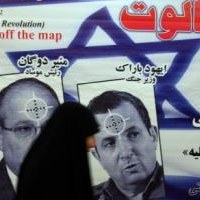
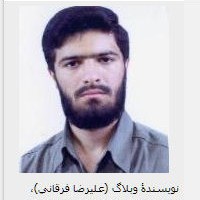
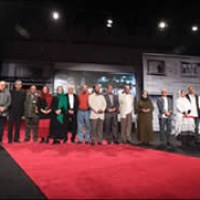
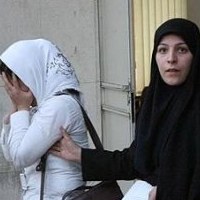





Latest Comments
Hello Mike, Thank you for your positive feedback to the article. I felt there wasn’t too much critical analysis of ...
Thanks for this considered and well constructed article. A follow up article on the manner in which the editorial contro...
THE CLUELESSNESS OF CLAIMING THAT OBAMA'S MIDDLE EAST POLICIES WERE A FAILURE CANNOT BE FURTHER FROM THE TRUTH, WHAT THE...
As long as Obama is the president of the usa do not trust the us government......
Thank you for an good read....